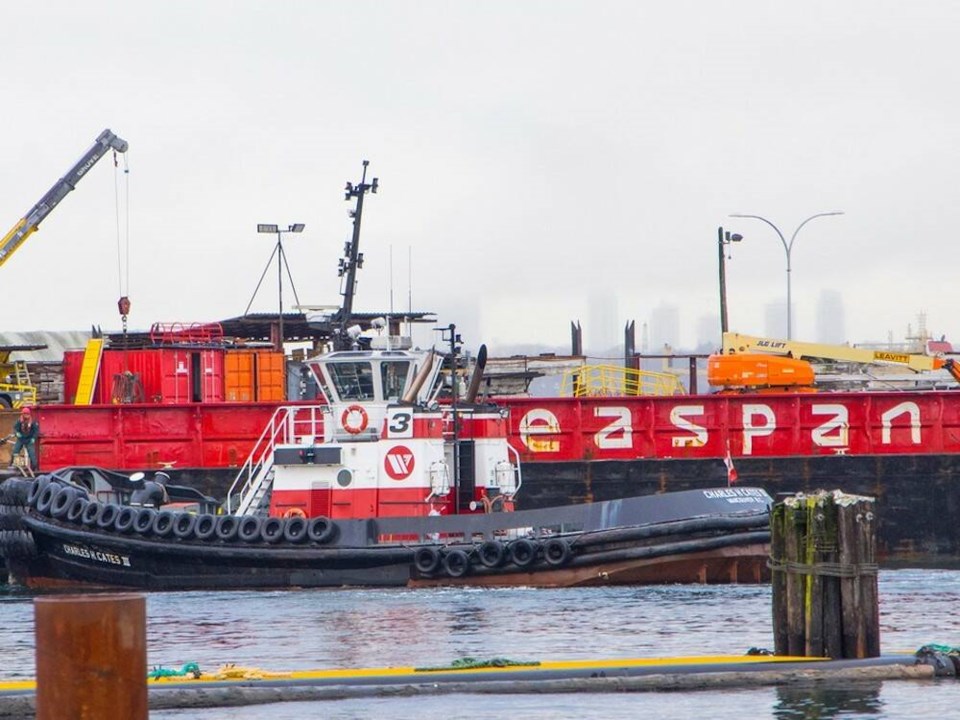VANCOUVER — Union workers on Seaspan tugboats have started job action after contract negotiations between the union and Seaspan ULC came to a standstill.
In a notice to members, the Canadian Merchant Service Guild said negotiations with the employer have reached an impasse, and it is commencing strike action on Thursday, Sept. 1, on all 30 Seaspan tugs in sa���ʴ�ý
The union represents the majority of captains and officers across sa���ʴ�ý. Tugboat operators escort and help berth vessels such as oil tankers and container ships, as well as tow barges.
Seaspan said it has been in negotiations to renew the collective agreements with unions representing its marine transportation workers.
“Despite our best efforts, and with the assistance of federal mediators, we have been unsuccessful in reaching an agreement with the Canadian Marine Services Guild,” said the company in a statement.
It said the job action is associated with Seaspan’s ship docking and tug and barge business. It does not directly impact the work at its shipyards or dry dock locations in North Vancouver and Victoria.
In an update to members last December, the guild said it has started negotiations with the company. It suggested some challenges in negotiations stem from a change in senior staff due to resignations in the company.
“It’s frustrating when the employer doesn’t have common knowledge or understanding that a marine employer should have…” it said.
“The bargaining committee and the guild are working hard to get the employer to a common understanding of some fundamental knowledge of the marine transportation industry and trying to raise the bar on the terms and conditions of employment.”
In 2014, tugboat workers nearly went on strike after disputes with Seaspan and the union and International Longshore and Warehouse Union Local 400. The job action was averted after the parties agreed to enter binding arbitration.
In January, Seaspan Ferries Corporation reached an agreement with the union, ending a short-lived, minutes-long strike that would have impacted the company’s commercial ferry service between the Lower Mainland and Vancouver Island.
About 50 per cent of consumer goods that gets to the Island are delivered by Seaspan through the Duke Point terminal in Nanaimo and Swartz Bay near Victoria.
— With files from the sa���ʴ�ý



